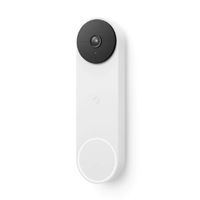With a smart door lock, your parent can unlock the door for guests with a simple voice command or through their smartphone. In some cases, the lock can also be incorporated into the security system so that it locks as soon as the system is armed. Or, it can be part of a home automation routine so that the door unlocks when your parent pulls up in their car after running errands.
Pretty cool, right? But the biggest benefit of a smart door lock—especially one with a keypad like the Schlage Encode Smart Wi-Fi Deadbolt—is the ability for you, a neighbor, or first responders to get into the house fast when there’s an emergency.
No more fiddling with a lockbox, looking for the hide-a-key, or trying to kick in the door. If you have access to the lock’s app, you can unlock it at any time and for anyone. Or you can create a PIN and share it with trusted friends and family members so they can get in through the keypad.
Don’t forget to give the PIN to the home security or medical alert monitoring center too. They’ll share it with dispatchers in the event of an emergency.
View our full list of the best smart door locks.












